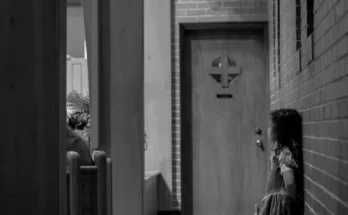After a long, stressful day, a man walks home through the city, lost in thoughts about work and family. But his routine is shattered by the sound of a man screaming in a nearby park. Curious and uneasy, he follows the voice and finds a horrifying scene: a husband publicly berating his wife, calling her “useless” and “pathetic,” shoving her, scattering her belongings, and grabbing her roughly. The woman stands frozen, crying, while passersby glance and walk on.
Fueled by outrage, the narrator begins recording the abuse. When the man turns his aggression toward him, the narrator warns: “Smile for the camera.” The abuser hesitates, then lunges—but backs off when he sees others filming too. The crowd grows, and the man’s bravado crumbles. He tries to apologize and drag his wife away, but the narrator and others intervene. A lawyer in the crowd offers her help. Police are called.
Later, the narrator uploads the video. It goes viral, sparking public outrage and conversations about domestic violence. Days later, the woman reaches out—she’s left her husband, found shelter, and is pursuing legal action. The narrator reflects on the moment: his small act of courage changed a life and inspired many. That night, he tells his family what happened. His children look at him with awe. His wife embraces him, proud. And he realizes that sometimes, doing the right thing doesn’t just protect someone—it teaches others how to be brave.


